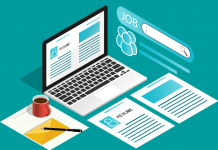Call center behavioral interview questions are what interviewers ask to get a feel of their applicants' working behavior. Usually, the questions are focused on the past, asking about applicants' good and bad work experiences. But sometimes, the questions could be hypothetical. If you wanna know the best way to answer them, this post will do just that.
So what's the best way to answer call center behavioral interview questions? You need to paint a scenario that puts you, the applicant, in a good light. Even (and especially) if the question is specifically asking about your mistakes, you want your final answer to paint you as a professional employee that will contribute to the company instead of cause trouble.
Now, how the heck do you do that? Should you lie? To answer that, let's discuss the 3 types of behavioral interview questions
1. The mistake-oriented behavioral question
With this type of behavioral question, the interviewer is making you cough up all the mistakes you've done in your past jobs. If the mistakes were bad enough for her to even consider hiring you, then she'll reject your application without second thoughts.
Here are sample interview questions and answers.
Tell me about a mistake you've made in your previous job. How did you handle it?
Remember: Avoid revealing mistakes that show your flaw of character like dishonesty and laziness. A flaw of character tends to creep up from time to time while a simple honest mistake can always be improved upon.
On my first day working as a cashier in Gaisano mall, I was ₱500 short. When you're a cashier, you're supposed to ask coins from customers so you end up changing them with a paper bill and you'd still have enough loose change for the next transactions. I did that. However, I got really confused on my first day and ended up giving more change than I had to.
As you can see in this example, the applicant made the following clear:
- It was her first day so things could feel overwhelmingly confusing— a reasonable excuse to make mistakes. A first-day mistake doesn't necessarily mean someone is dumb or incompetent. It only means everyone has different learning curves.
- She admitted her mistake rather than blame someone else. She could have blamed dishonest customers but she didn't. Interviewers appreciate a sense of responsibility. After all, it really was her mistake.
Step 2: What did you do to correct it?
Admitting your mistake isn't enough. You have to explain the action you made to correct or avoid the mistake in the future. It has to be productive.
So I asked the help of my roommate, who was also a cashier. And she conducted an exercise for me.
She'd ask me questions like, "How much would you ask from a customer who paid you 100 peso bill with a ₱56.00 charge? Remember, you shouldn't give out coins if you can avoid it."
Then I would answer under 8 seconds. She'd tell me if I'm right. And if I'm wrong, she'd explain why.
Here's what went right with this example:
- As silly as her solution might sound, it was actually productive. It addressed the root cause of problem down to its roots.
- It was concrete, specific, and based on actual experience. It gave the impression that what the applicant was claiming she did, actually happened. There's an unmistakable taste of authenticity in it which interviewers love.
Step 3: What was the result?
This is the part where you wrap it up and explain what happened as a result of your action. You'll know you did it right if the result is what your interviewer wants to hear— meaning, the result should ultimately benefit the company and puts you, as an applicant, in a good light.
The more I answered her test, the more I got better at giving out change without running out of coins. Until everything became automatic and I didn't have to worry about negative figures in the report.
If there's one thing I learned from that experience, it was this: If I have problems, I should never hesitate to ask for help. I could feel bad about it forever and keep making the same mistakes, or feel bad about it, move on, then address the problem. I feel proud that I chose the latter.
When citing the result, remember:
- Don't forget the lesson/s you've learned. This will show the interviewer that you're not only viewing the situation as a mistake but also as an opportunity to improve upon.
This is a type of behavioral question that asks about your contribution in the previous company you were working in. An example is:
What was the most significant contribution you've made during your past jobs or internship?
This could be really tricky if you did nothing remarkable in your previous job, i.e., you did what you're paid to do but didn't go the extra mile.
However, if you think hard and good about it, chances are, you'll come up with an answer. Here's how:
Step 1: Reveal your best accomplishment.
For example, you were both a service crew and cashier in a small food store. At first thought, you'd think, "How could have I possibly gone the extra mile when I was a service crew and a cashier? I basically prepared the food, made sure I gave the right change, and clean the store. That's it."
But take a moment to actually think about the common challenges you've encountered in your previous job. If you were able to address at least one of them, then surely, you can answer this question.
A good example is how you convince customers to buy your products.
In my line of work which is dealing with customers face to face, the one significant contribution I'm really proud of was my ability to easily anticipate what each customer could possibly want.
- It's also a plus if your highlight a skill which is related to one of the skills required in a call center workplace. In this case, the applicant's ease when dealing with customers.
Step 2: Back up your answer with an example.
When revealing your best accomplishment, make sure to back up your claim by providing an example. This makes your answer more credible and realistic, allowing the interviewer to paint a clearer picture in her head and making it easier for her to remember you.
For example, I found that to convince a customer to buy what I'm selling, I should let the customer do the talking first, instead of me seizing that moment to promote my milk teas.
At some point in a conversation, a customer would reveal that she's trying to lose weight. That's my cue to explain the benefit of our Oolong and Jasmine tea which are known for losing weight and facilitating digestion.
This way, customers feel heard and they're more willing to reveal info about themselves than they would have had if I did the talking first. I then based my recommendation on their info.
- Don't go overboard with providing multiple answers. One answer is enough. Focus all your efforts in supporting that answer by painting a picture that the interviewer can easily make sense of.
Step 3: What was the result?
As a result, I'd seen more and more customers coming back to try out different flavors each time, and sometimes, bringing along some friends with them to share the experience. For me, it felt fulfilling.
- This is the easiest portion of your answer. Remember, the result should align with what the company is trying to achieve; in this case, to promote their products.
Describe a situation in your previous job when you've exercised integrity and honesty.
Describe a situation in your previous job when you've exercised integrity and honesty.
If the company you're applying have banking establishments as its clients, expect to get asked a lot about honesty and integrity. After all, the job is all about money.
Here's an example:
The situation:
When I was working as a QA in my previous company, some of the calls I review are my friends'. Being the only QA in the company, my friends knew this. If the QA rating reaches 90%, they'd get an extra ₱5,000. Below that, they'd get zero.
There were times when they would subtly hint or jokingly tell me that I should up their QA scores to 90 so they'd at least get their bonuses. They hadn't directly asked me but I got the point.
Action taken
Of course, I didn't do it, partly because it just felt wrong to take advantage of my position and undermine the efforts of those agents who truly reached the quota, and partly because I didn't want to get in trouble.
So I told them no, in the same subtle way they did. They got the point and they didn't raise the subject again.
Lesson learned:
For the record, we're still friends. If there was something I learned about the experience, it's this: If you have to choose between honesty and friends, choose honesty every time. If your friends are real, they'll understand.
4. The hypothetical question
These are the what-would-you-do type of questions. They're situations that haven't happened to you yet but might just be possible if you get hired. For example:
What would you do if you have a rude colleague who’s affecting your productivity at work?
Here's a sample answer:
When a rude colleague is affecting my productivity at work, I'd first do an honest self-assessment and ask myself whether there are things I missed that I should have done to avoid trouble. If yes, then I'd try to improve upon those things.
If the answer is no or if the problem persists despite my best efforts, then I'd talk to him about it and bring up the issue as politely as I could.
He could just be having problems with his personal life that's affecting his working behavior. Or it could just be a misunderstanding.
If the issue remains without any improvement, my last resort would be to bring up the issue to a superior who's most qualified to handle the issue.
How to answer hypothetical questions
The key to answering hypothetical questions is to integrate professionalism on your response. Obviously punching the douchebag is out of the question unless you want your resume in the trash.
The best approach is to try resolving the matter on your own first— starting with the good old self-awareness, then eventually talking to him about it in case he's just too numb to notice—before escalating the concern to your supervisor.
You can't be escalating issues straight away just because you have a supervisor. In fact, the same principle applies when handling supervisor calls.
Hope this helps with your interview. Good luck!



